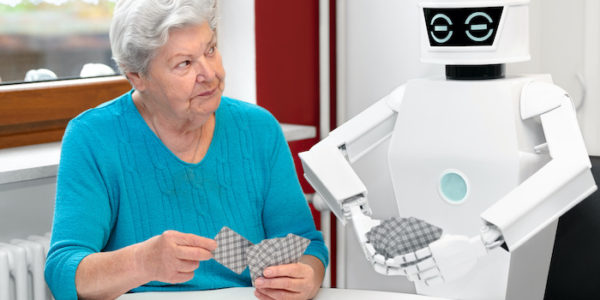Robots are already indispensable in manufacturing. As the pandemic changes consumer behavior and workplace realities, they’re becoming more common in agriculture and service industries. But there are some areas in which robots have been a possibility — but a controversial one — for years. Robots in elder care are one of those areas.
The need for robots in elder care
One of the first places the idea of robots in elder care came up was Japan, where an aging population has caused worries about whether there will be enough young workers to provide the needed care for the increasing numbers of elderly people. Researchers in Japan found that robots could provide quite a few basic services in care centers.
During the pandemic, robots did a lot of fetching and carrying in medical facilities. Cleaner robots have been employed not only in hospitals but in retail and other facilities as well. Robots, including animal-inspired “pets” as well as humans, have been brought in to provide companionship for the elderly, too.
But there are moral questions. Some observers say that caring for humans with robots is wrong, or disrespectful, or just not good for the elderly. Some worry that elder care robots could encourage relatives to ignore their elderly relatives.
New research
A new study from Singapore suggests that elderly people may actually respond better to robots. In a small-scale study in a single care home, the responses of elderly patients to a robot and a human, both facilitating a bingo game, found that the patients were actually more engaged with the robot than with the human.
The researchers posit that successful social robots would make supervised recreation more available to nursing home residents. Without needing to take up caregivers’ time, bingo games with social robots could be held more frequently than games that required human workers.
This would not replace human caregivers with robots –it would use robots to increase or extend the recreational options for seniors. The robots would in effect add additional services, replacing time that elderly patient currently spend alone.
The future?
Elder care robots may turn out to be a solution for the problem of insufficient caregivers or elder care workers in the future. Right now, your industrial robots need high quality, reliable motion control systems.
If you use Indramat motion control, that’s what you have.If you ever need Indramat service or support, we can meet your needs. Call us for immediate assistance.
